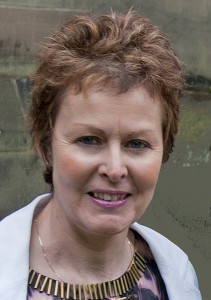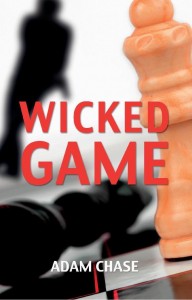Masquerading as Male in Crime Writing: A Pseudonym Story
Rightly or wrongly, there is a perception, in certain quarters in Britain, that women cannot write as convincingly and authentically as men about guns, weapons, biological, or otherwise, explosions, flying off in helicopters, tearing off on motorbikes and security service issues.
I suspect, although I have no evidence to support it, other than the fact I’ve received more fan mail from the States than from fans in Britain, that female writers of the ‘action adventure’ style genre are more accepted in the U.S. than here in the U.K. Perhaps there is an obvious explanation: it’s not so unusual for women in America to carry guns.
In the same vein, the threshold for violence seems more flexible and tolerant when applied to U.S. writers: the aptly named Karin Slaughter, Patricia Cornwell and Alex Cava, to name a few examples, are and remain rightly popular both sides of the Atlantic. But is there a different attitude towards female British writers?
 I’d never given it a thought until I participated in a panel and was confronted by an angry female reader who criticized a particularly nasty scene in one of my novels.
I’d never given it a thought until I participated in a panel and was confronted by an angry female reader who criticized a particularly nasty scene in one of my novels.
The general thrust was: ‘You’re a woman so how can you, of all people, write this stuff?’
As I tried to explain the dramatic argument and point of the scene, which had about as much impact as slicing through a glacier with a spoon, I got the distinct impression that my gender should make me more moral and less aggressive than my male counterparts. Moreover, I felt as if I’d transgressed the ‘sisterhood’.
I didn’t dare let on that I was actually the mother of five children, because I thought it would cast an even greater slur on my already tarnished reputation!
By contrast, on another occasion, I was asked, this time by a male radio presenter, whether I had a pint in one hand and a ‘smoke’ in the other, to ‘get myself into my male characters’.
It made me laugh out loud because I thought it a bit of an own goal – no pun intended – because not all guys swill beer and chug away on full-strength cigarettes, or, indeed, play soccer.
When I explained that I find it easier to crawl inside a male psyche and write from a male perspective, I was greeted with open bewilderment. Worse, it was perceived as a gimmick or pulling a fast one on the reader, which could not be further from reality, something I’ll return to later.
Strange to say, whenever I pick up a phone to obtain information about guns, motorbikes, helicopters, police procedure, forensics, basic politics of how certain organizations work, I often, although not exclusively, find myself conversing with a man. This has always played in my favor because, for whatever reason, men really like the idea of a woman being interested in what they consider to be traditionally masculine pursuits.
Not once have I been told to sling my hook because ‘you can’t possibly understand, you’re a woman’. It seems, therefore, that there is a disconnect between this open attitude and a more closed, stereotypical point of view.
Needless to say, I sensed that to write a blood and guts, spy thriller with a male protagonist and write it with a first person narrative was definitely going to push certain ‘you can’t do that’ buttons. The task was especially tricky because my main protagonist is an assassin, a man of moral ambiguity, (even if he screeches to a halt in the opening scene and questions his morality and reason for living.)
 I knew that I wasn’t just about to push a button; I was going to enter the ‘we’ll never sell you as a woman’ arena.
I knew that I wasn’t just about to push a button; I was going to enter the ‘we’ll never sell you as a woman’ arena.
Returning to why I find it easier to write from a male perspective, the simple truth lies in my childhood.
Three months before my ninth birthday, my much-loved mom, (no affectation here, I’m originally from the Midlands and we use the term ‘mom’ rather than the British ‘mum’) died in a road accident.
From that moment my family consisted of my two big brothers and my father. In spite of me being sent away to school, they were the biggest influences on my life by far, while my mother’s death was and remains the most defining. It was a catastrophe and it changed us all, but for me something elemental shifted.
My father was no ordinary man.
He came from lowly beginnings, left school at fourteen, and yet by the time he was in his forties, he was running his own rolling mill and steel stockholding business. By his fifties, he was driving a Rolls Royce and owned a racehorse and a pub.
He was the original self-made man and, in common with many self-made men, he was competitive, tough, and demanding of others, particularly of his children.
It wasn’t easy.There was a fair amount of domestic mayhem. To mitigate this, I lost myself in books. No way could our household be described as ‘bookish’. We had quite a random collection of works of non-fiction as well as the odd novel so I quickly worked my way through the entire Pan series of horror stories as well as dipping into John Cleland’s Fanny Hill – not your average reading material for a nine year-old!
At home, the talk was of cars, women, sport, booze, music and business deals. Consequently, I feel comfortable around men in a way that I never do with women.
It’s tricky terrain, even now decades on, but it’s the most honest answer I can give.
For me it was a ‘no brainer’ to write with a male pseudonym.
I admit that there was also a strong element of ‘ if I can’t beat my male counterparts, I’d join them.’ It seems as though some of my father’s ultra-competitiveness has rubbed off!
—
Adam Chase is a pseudonym for crime writer E V Seymour. Eve was ‘outed’ as Adam Chase (by choice!) at the Cheltenham Literature Festival in the ‘Creating Crime Fiction’ event, and she is very keen on the issues faced by women writers in crime fiction, and the pros and cons of pseudonyms. Follow Eve on Twitter @thrillerchase
Wicked Game review by Crime Thriller Girl.
E V Seymour works as an editorial consultant and lives in Cheltenham with her husband, where she is currently writing the follow-up novel to Wicked Game.
Category: British Women Writers, Contemporary Women Writers, On Writing, Women in Crime Writing, Women Writing Crime
Comments (9)
Trackback URL | Comments RSS Feed
Sites That Link to this Post
- In the Media: 14th September 2014 | The Writes of Woman | September 14, 2014
- I am a man (I am, I am!*) — she said | t upchurch | July 9, 2014
- Featuring Women Writers on WWWB 2013 - Women Writers, Women Books | December 31, 2013
- Women and Writing | Lynley Stace | December 14, 2013




Great article, but it’s a bit alarming that this is still headlining. Earlier this week I was chatting to someone about George Eliot (Mary Ann Evans) and whether, 140 years later, JK Rowling used her initials to reduce gender bias. Ten more years on and we’re still here?
OK, writers have to eat, and perhaps the ‘coming out’ as female after acclaim with a male pseudonym makes the point, but we need to claim our turf and it would be nice if we could do it with little or no discussion: ‘here’s my work’. (I speak from the background of scientific writing; when I started, most managers were surprised to learn I wasn’t a secretary, and I was told off more than once for not wearing a skirt… all together now, SIGH.) I know journalists and fiction writers have been given the same deal.
We’re seeing some great, brave new female fiction writers coming through now (thanks, internet) and I hope to goodness that in twenty years’ time, this is on its way to becoming an historical issue.
I am not a published writer so the question does not arise for me but I doubt it would anyway because I write mostly for children It seems to be an area where it seems to be quite acceptable to be female and write about boys. Why?
I wonder if we Brits still think of crime as a man’s world. I grew up reading crime/thrillers from the sixties and seventies, many of them James Bond style where men were men and women screamed.
I have read that female scifi writers also find it hard to be taken seriously. It depresses me as I thought we’d moved on from such hide-bound views.
In my own genre (gay romance), the influx of women writers has transformed the genre into a thriving and growing market, but there is still that element of ‘you can’t write that, you’re a girl’. We can and do. There are a number of female authors writing under male pen-names, especially those writing from the first wave of the genre.
I have considered a male pseudonym, or at least a gender-neutral one, and would actively look at it if I ventured into another genre but at the moment I don’t feel a female name hinders me too much.
I’m a noir writer and I find the same distressing habit: male readers who only read — and only praise! — male writers. Raymond Chandler had no problem singing the praises of Elizabeth Sanxay Holding, but the fact that he is idolised and she nearly forgotten tell us a lot.
I recently got a wonderful pull quote from a fellow thriller author, but it made me sigh a little that he only compared me to other women writers — *fantastic* females, but argh.
So, yeah — I have begun using a male pseud.
Very, very interesting, Eve. I suspect you’re right, of course; in your genre you will get more respect as a “male” writer than as a female one, and I think that’s a shame. For instance, my favorite author, Cornell Woolrich, wrote fantastic women and only so-so men. I think there’s something to be said, too, for not being too close to a character. That’s the beauty of writing, after all; you can put yourself into the shoes of a stranger and try to see the world from their perspective. The real proof, of course, is in how the book comes off – and if no one is picking up on your feminine identity, then clearly you’re doing a fine job of writing as a man!